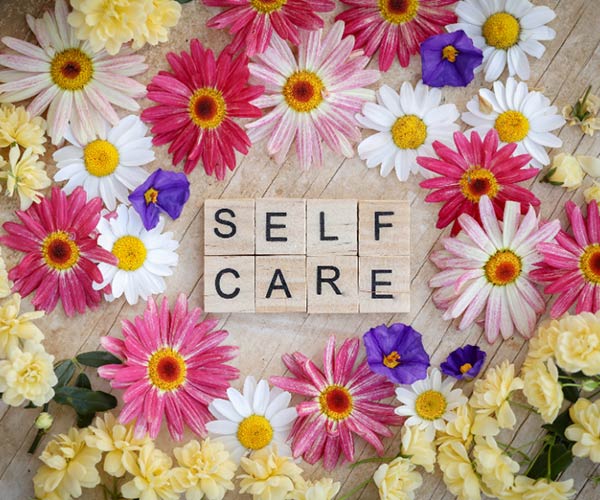
Amidst the constant emphasis on caring for others, the well-being of those who take on the role of caretaker often goes unnoticed. Whether you're a professional caregiver, a healthcare worker, or simply someone who frequently supports and cares for others, prioritizing self-care is not just a luxury – it's a necessity.

In this blog, we'll delve into the significance of self-care and offer practical ideas for individuals who work with others to safeguard their own physical and mental well-being.
What's all the hype about self-care these days? It seems like everyone is talking about it, but what exactly is it? And how can it influence better outcomes for both the caregiver and the individuals that they care for? Self-care is the deliberate practice of taking actions to preserve and enhance one's physical, mental, and emotional well-being. It goes beyond mere indulgence, encompassing a holistic approach to maintaining a healthy lifestyle. The significance of self-care lies in its transformative power. Especially, where individuals often find themselves immersed in the responsibilities of caring for others, neglecting one's own needs can result in burnout, stress, and a decline in overall health. Prioritizing self-care is not a selfish act but a necessary investment in one's ability to navigate life's challenges with resilience and compassion. By recognizing the importance of personal well-being, individuals can cultivate a sustainable balance between caring for others and themselves, leading to improved mental clarity, enhanced productivity, and a greater capacity to positively contribute to the well-being of those around them. In essence, self-care is the cornerstone of a fulfilling and sustainable life.

Schedule "Me Time"
Have you ever found yourself so immersed in caring for others that you neglect your own needs? It's a common challenge for caretakers. One of the first steps in prioritizing self-care is to ask yourself this: When was the last time I scheduled dedicated time for myself? Carve out moments of respite in your busy schedule, whether it's a quiet walk, indulging in a good book, or immersing yourself in a hobby you love. By intentionally setting aside "me time," you're not only preserving your well-being but also acknowledging the importance of your own happiness and relaxation.
Quality Sleep
How often do you find yourself sacrificing sleep to fulfill your caregiving responsibilities? Quality sleep is not a luxury; it's a fundamental pillar of physical and mental health. As a caretaker, ensuring you get enough rest is paramount. Establish a consistent sleep routine, create a sleep-friendly environment, and recognize that a well-rested mind is better equipped to navigate the challenges that come with caretaking.

Healthy Nutrition
In the midst of caring for others, do you sometimes neglect your own nutritional needs? A balanced diet is more than a health recommendation; it's a form of self-care. Nurture your body with a variety of fruits, vegetables, lean proteins, and whole grains. Consider meal prepping to make healthy eating more manageable amidst a demanding schedule. By fueling your body properly, you empower yourself to manage stress and maintain the energy required for caregiving.
Mindful Practices
Have you ever paused to engage in mindfulness practices during your busy day? Mental health is as vital as physical health, especially for those in caretaking roles. Incorporate mindfulness practices such as meditation, deep breathing exercises, or yoga into your routine. These practices not only alleviate stress but also cultivate a sense of calm, providing you with the mental resilience needed to offer compassionate care.
Seek Support and Set Boundaries
How often do you feel comfortable seeking help or setting boundaries in your caregiving role? It's crucial to understand that it's okay to ask for support and establish clear boundaries. Communicate your needs with colleagues, family, and friends. Delegating tasks and setting limits on your time and energy are essential steps in preventing burnout and maintaining a healthy balance between caregiving and self-care.
Amidst the constant call to care for others, recognizing the necessity of prioritizing self-care becomes imperative. By addressing your own physical and mental well-being, you not only enhance your ability to care for others but also contribute to a sustainable and fulfilling caregiving experience. Remember, the most effective caregivers are those who understand the importance of maintaining their own well-being – a practice that transforms self-care from a luxury to an indispensable requirement.
If you need additional assistance, numerous valuable resources are available for caregivers. Here are some that have proven helpful to others:






Leave A Comment
You must be logged in to post a comment.